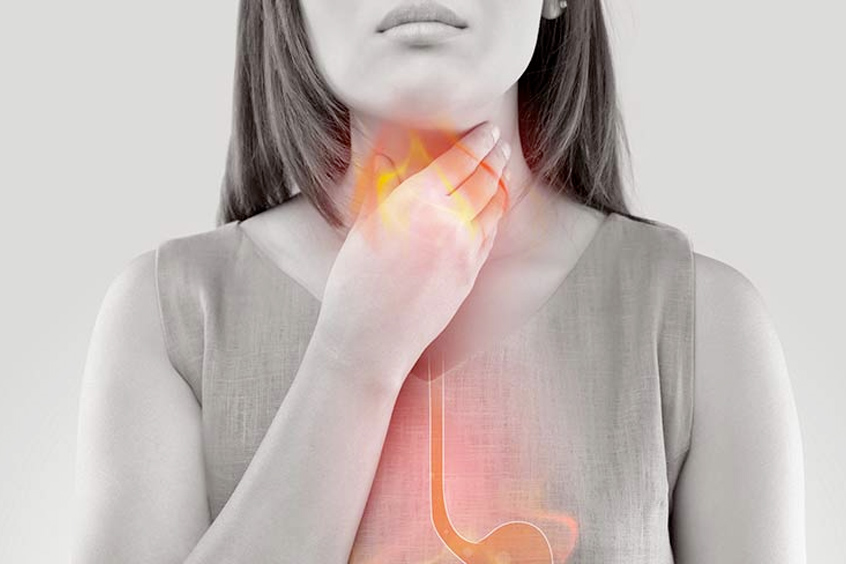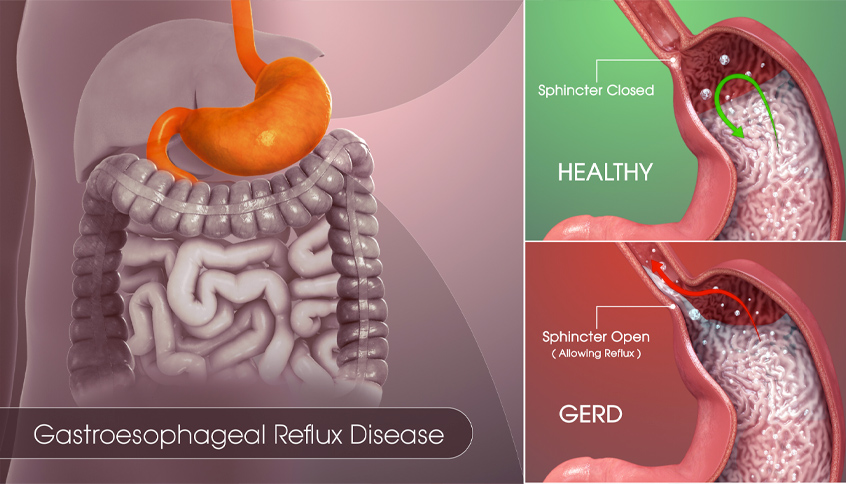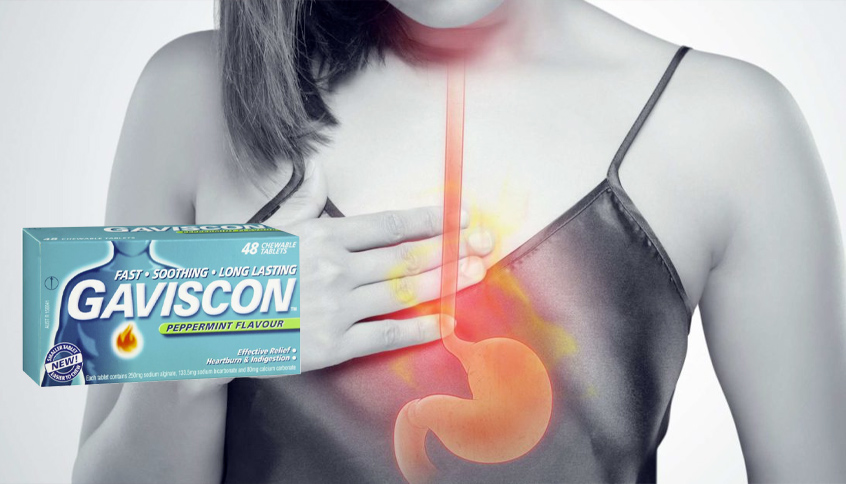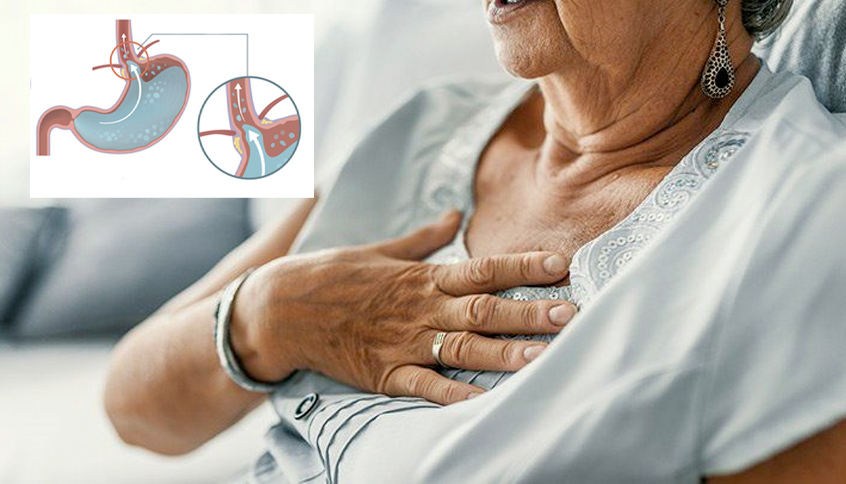
Heartburn and Gastroesophageal Reflux Disease: Symptoms, Causes and Treatments
Contents
What Is Heartburn?
Heartburn is a burning feeling, a burning pain in the chest that is usually manifested after eating, in the evening, when bending over and when laying down. This condition can appear at any stage in your life and you really shouldn’t worry about it if it happens occasionally. Unfortunately, heartburn can become chronic and persistent, interfering with your daily life and well-being. It’s extremely uncomfortable and sometimes even painful.
Symptoms and Causes
Besides the main symptom which is a painful and burning feeling in the chest, heartburn can also be characterised by having a bitter or acidic taste in the mouth. And even though some pains might reduce or go away by laying down, this isn’t the case with heartburn. In fact, the heartburn symptoms may even worsen when laying down or bending over.
Generally, when you swallow, a band of muscle around the bottom of your esophagus relaxes to allow food and liquid to flow down freely to your stomach. Once done eating, the esophagus should tighten and go back to its former state. Unfortunately, in some cases, the lower esophageal sphincter relaxes more than it should, allowing the stomach acid to go back into the esophagus, causing heartburn. This condition is also known as acid reflux and in some cases can be severe.

You should seek immediate professional help in case of feeling severe chest pain accompanied by other signs and symptoms like pain in the jaw, pain in the arm, difficulty breathing etc. Unfortunately, these symptoms are related to heart attack, so acting reasonably in such situations is fundamental because this could save your life.
Speaking of heartburn, you should contact your doctor if heartburn occurs twice a week, when you have difficulty swallowing food, or when your symptoms persist despite the use of medicine for acidity and heartburn. You should also call help if you have lost your appetite and you have lost lots of weight because of this.
Diagnosis and Treatment
The most important thing you should know is that you shouldn’t make a diagnosis on your own. In order to know whether your type of heartburn is a symptom of GERD or not, you should contact your doctor so he could perform a physical examination and some tests like X-Ray, endoscopy, esophageal mobility testing and ambulatory acid probe tests. An important thing to know is that heartburn can be caused by eating too spicy or sour food and from overeating. It’s also quite common during pregnancy, especially during the first trimester, but fortunately, this can be reduced by improving the diet. In those cases when an improved diet doesn’t help, then you should certainly turn to the use of over-the-counter heartburn medicine.
Which Medicine Is Best for Acidity and Heartburn?
Antacids
It’s safe to say that antacids are some of the most popular, most commonly used and effective medicine for acidity and heartburn. The reason for this is their ability to neutralise stomach acid, providing quick relief. They seem as quite helpful for those of you who suffer from heartburn that isn’t that frequent. What you need to know is that they can’t heal an esophagus that is damaged by stomach acid.

H-2-Receptor Antagonists (H2Ras)
Just like antacids, H-2 receptor antagonists can also reduce stomach acid, but the main difference is that they don’t act as quickly as antacids. However, practice shows that they can provide you with a longer relief.
Proton Pump Inhibitors
These medicines work just the same as the above two, but they are considered the most potent of them all. Practice shows that they can provide a more profound and prolonged reduction of stomach acid production. Some of the most popular forms of proton pump inhibitors are lansoprazole and omeprazole.
What Is Gastroesophageal Reflux?
Gastroesophageal reflux or also known as GERD is a disease or a digestive disorder that can affect the place between the esophagus and your stomach. Just like heartburn, GERD occurs when the stomach acid is constantly returning into your stomach and mouth, irritating the lining of the esophagus. In most people, GERD occurs from time to time, and as long as it doesn’t occur frequently, it isn’t considered as severe and dangerous. In case it happens more than once per week, then it’s considered moderate/severe and usually, it has t be treated with medications. Although there are many home remedies that seem successful in many cases (usually if GERD is mild), in most cases, the use of heartburn relief medicine is essential. Luckily, a lot of people can manage the symptoms of heartburn and GERD with lifestyle changes and over-the-counter medications and after time they can even ditch their use.
Symptoms and Causes
The symptoms of GERD are similar to the ones of heartburn. Usually, it manifests as a burning sensation in the chest that mainly appears after eating. Chest pain, difficulty swallowing, a sensation of a lump in the throat and regurgitation of food or sour liquid are some of the main symptoms that can appear when dealing with GERD. Those of you in whom acid reflux gets worse at night can also experience chronic cough, laryngitis, disrupted sleep, new or worsening asthma, etc.

Diagnosis and Treatment
GERD can be mainly diagnosed by physical examination and history of your symptoms and signs. In order to be certain, your doctor might recommend endoscopy, ambulatory acid (pH) probe test, esophageal manometry and X-ray of your upper digestive system.
The first step towards treating GERD is making lifestyle changes and changes in your diet. In case you don’t feel any relief after a few weeks, then your doctor might recommend medications like antacids, medications that are designed to reduce acid production and medications that are designed to block acid production and heal the esophagus. Aside from this, he may recommend the use of prescription-strength H-2 Receptor blockers, prescription-strength proton pump inhibitors and medications that are designed to strengthen the lower esophageal sphincter. If none of these things helps, then your doctor might recommend surgery or some other medical procedures.

